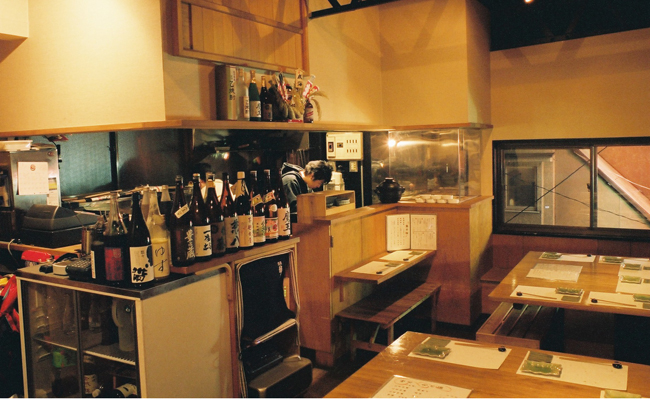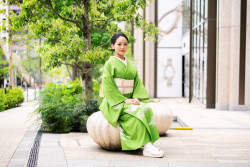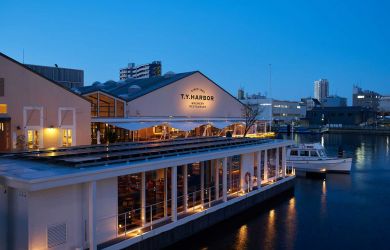
Originally published on metropolis.co.jp on January 2010

Photo by James Hadfield
There are probably places like Narumi lurking in most neighborhoods around Tokyo—the art is in ferreting them out. We first stumbled across this petite eatery after straying a bit too far from the crowds of the nearby Koenji Awaodori festival in search of food. It’s a gem, but you won’t find any mention of it in the vast archives of Japanese dining websites like Gurunavi or Tabelog, or anywhere else on the web—which, in 21st century terms, is tantamount to not existing at all.
The restaurant is named after its youthful owner, 30-year-old Masayuki Narumi, who earned his stripes in kitchens in New York and Kagurazaka before opening a place of his own a couple of years ago. It’s intimate, by necessity as much as design: single diners can sit at a teeny counter by the kitchen, while couples and groups rub shoulders at a pair of communal tables. The soundtrack is, and apparently always will be, reggae and dub.
Narumi changes the menu regularly according to what’s in season, and is particularly adept with fish and vegetable dishes. On a recent visit, we were told that the aji (horse mackerel) was good that day, and it was. Our tsuri aji-sashi (¥850) arrived exquisitely dismembered, its flesh arranged in bite-sized chunks with two types of wasabi, grated ginger and a variety of accoutrements, and the remains of the fish skewered barbeque-style for decorative effect. The wakasagi (smelt) karaage (¥800), served with a dish of spiced salt, was also pretty moreish.
Narumi’s foil, Masaya Sawada, used to work at a sake shop, and is always happy to dispense recommendations. We started with draft Asahi (¥500), served in ceramic cups, and then moved on to an excellent junmai-ginjo sake, the umami-rich Azumaichi (¥900), which came in tinted cut glasses filled right to the brim.

Photo by James Hadfield
When our yudofu (¥600) had finished cooking, Sawada carefully arranged it in two bowls; delicately flavored with ponzu, it was a little bit bland, and we ended up adding a few dashes of shoyu to give it more of a kick. The kyoyasai takiawase—Kyoto vegetables including carrot and satoimo in a light broth (¥900)—made more of an impact, though not as much as the eihire stingray fins that the couple next to us were having (¥400). Now that’s a show-stopper.
Another round was in order, and on Sawada’s advice we tried a glass of Ichibanbashi black sugar shochu from Kagoshima (¥750) and some Hououbiden yuzu sake (¥600). The latter was the kind of drink that could get you very sozzled indeed—a perennial problem at Narumi. The alcohol selection provides no end of tempting options, but there’s precious little on the food menu that’s stodgy enough to soak it all up. It’s a lesson we’ve learned the hard way, so don’t say we didn’t warn you.







